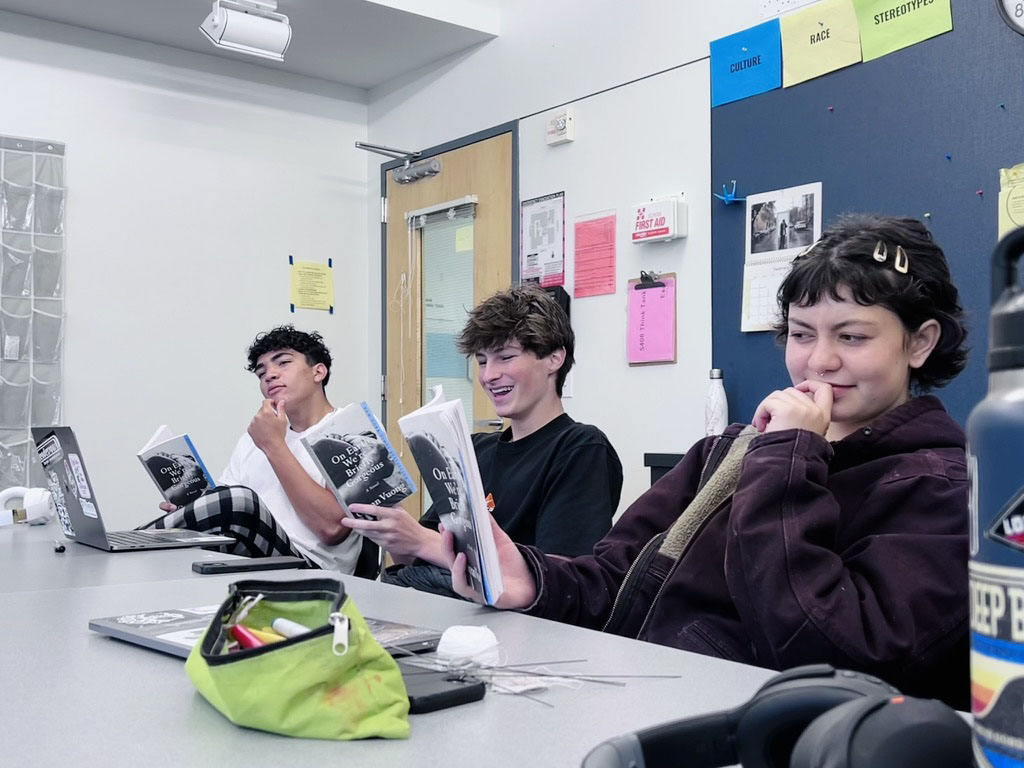This year, 9th graders will read the modern novel “Homegoing” by Yaa Gyasi. However, six years ago, it would have been Homer’s 2500-year-old poem “The Odyssey” instead. As Urban’s English reading lists have changed over the last decade, students and teachers have been discussing where both classic and contemporary literature belong in the curriculum.
The English department has moved away from a classics-based curriculum to focus more on contemporary literature in the past few years. In addition to removing “The Odyssey,” UAS Shakespeare became an elective course starting in the 2020-2021 school year, where it had previously been a required class for juniors.
While deciding how to design reading lists, English teachers have considered both the traditional approach of reading classics and the wider representation available in modern literature.
English Teacher Amanda Moore believes that it is essential to read classics. She said, “[It is important] as a communal experience that we share across generations and across time periods and across schools.” Since books are typically published decades before being considered classics, they include language and thematic elements that have stood the test of time. “It’s really important to be in conversation with everything that’s come before you even as you are [preparing] yourself for the future,” said Moore.
English Teacher Courtney Rein also emphasized that assigning classics can be a great way to expose students to more difficult texts. “I think classic literature can sometimes be more challenging, whether it’s in the language, whether it’s in the ways characters are portrayed, [or] whether it’s in the kinds of stories that are on display,” said Rein.
Vivienne O’Dell ‘24 argued that this challenge is necessary to prepare students for the future. While some English electives such as UAS Russian Literature and UAS American Romanticism include canonical texts, O’Dell pointed out that not all students take classes like these, potentially leading to a learning gap. “Once you get to college and you’re confronted with Tolstoy or ‘Moby Dick’ … you’re not going to be prepared to read and analyze that,” she said.
All students are required to take the core English classes during their first two years at Urban, but primarily encounter classics during English 2B. During the term, students read F. Scott Fitzgerald’s “The Great Gatsby,” Zora Neale Hurston’s “Their Eyes Were Watching God” and William Shakespeare’s “Macbeth.”
However, O’Dell supported restructuring the core curriculum to emphasize students’ exposure to classics. “Maybe read at least one in freshman year or one at the beginning of sophomore [year],” she said.
Despite arguments in favor of including more classic readings in high school classrooms, teachers also recognize reasons to include modern texts, in particular to generate interest within classes.
“[The English department has] focused a lot on … engendering some passion amongst our students,” said Moore. “I think sometimes that means moving toward more modern [instead of] Eurocentric literature.”
Rein echoed Moore’s statement about student interest. “We’ve responded to what students want … and really kept our [goal to be] students enjoying what they’re reading,” she said.
Another reason for the shift toward modern literature is the wider and more accurate representations of various identities that newer books provide. English Department Chair and Teacher Cathleen Sheehan described the lack of diversity in books considered classics when she was a high school student. She said, “When people … started looking at the canon, they realized, ‘Oh, it’s really dominated by white men.’ So who are the people that we’ve excluded?”
Rein also emphasized the need for students to identify with assigned texts and suggested that this goal has pointed the English department toward incorporating more contemporary readings into the curriculum. “[Students should be] seeing themselves reflected and also wanting to participate in conversations and writing about texts, so that’s part of why the pendulum has swung,” she said.


